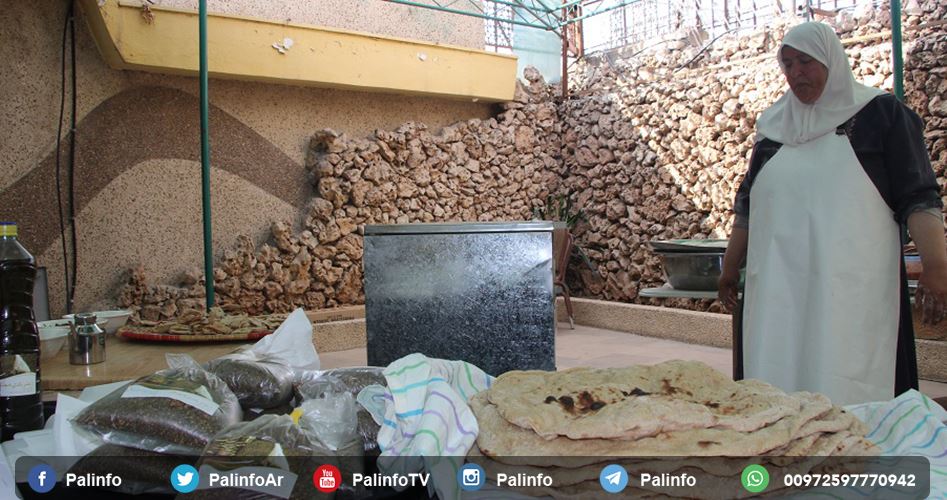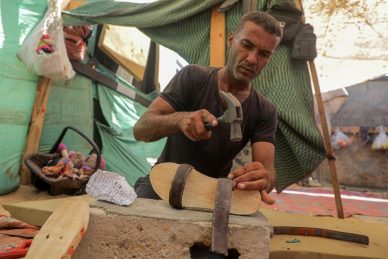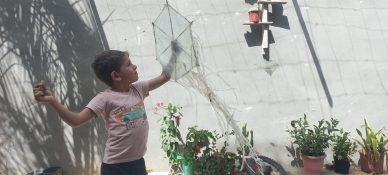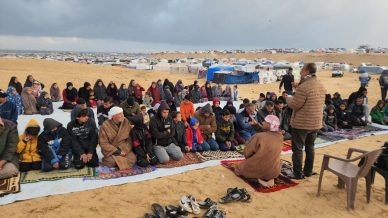The stall of the elderly Palestinian lady Safiya Ramadan from the town of Tel to the West of Nablus exhibited at the First Olive Fair held near the end of the past year 2017 was the most popular and her items were being sold the most due to the variety and quality of traditional food provided by her.
Ramadan is proud of her food products including local flour green thyme olives and olive oil. Visitors line up waiting for their pastries.
Ramadan is the widow of Ibrahim Afaneh from the hometown of Tel who was killed during the Israeli all-out attack on Nablus in 2002. She is currently taking care of her eight-member family including a university student after the murder of her husband. Her son Ismail had been jailed by Israel for a period of time.
Production and delivery
She says “I have been working in this field since 2008 and I have become known and all the requests are made and delivered to those who wish even though there is no specific place of work whether at home or at the exhibition.”
Ramadan mocks today’s generation by saying “Today’s girls do not know how to make traditional dishes. Most of those dishes are made from my own land produce from the town of Tel. Thanks God I am surviving.”
She notes to the PIC that she also works in producing all kinds of pickles and deliver them to those who request during all time of the year which made her known to the wives of businessmen in Nablus governorate in addition to the famous nutrition engineer Ayman Abu Zaarour.
Traditional dishes
Speaking about how she makes pastries and traditional dishes she says: “I use local flour and after kneading and baking it delicately it is put on fire to produce pastries and traditional dishes and sometimes Misakhan (traditional Palestinian dish) is prepared on request.”
She receives many contacts to prepare meals on Fridays as well as food events for associations and trade unions and women’s institutions and everyone testifies to her skills in preparing food. She adds “This week peoples’ requests were mainly the Maftoul dish which is a Palestinian traditional dish usually eaten in winter as well as pastries made on wood-fire.” She notes that a week ago there were requests to make Misakhan with olive oil.
She adds that she is suffering a lot for her family to survive by saving money with a group of women to manage her affairs. She is also repaying a loan she got to build the wall of her house which was destroyed as a result of the Israeli attack on Nablus. She makes her living by making food in addition to a small salary she gets from the Palestinian Authority.















